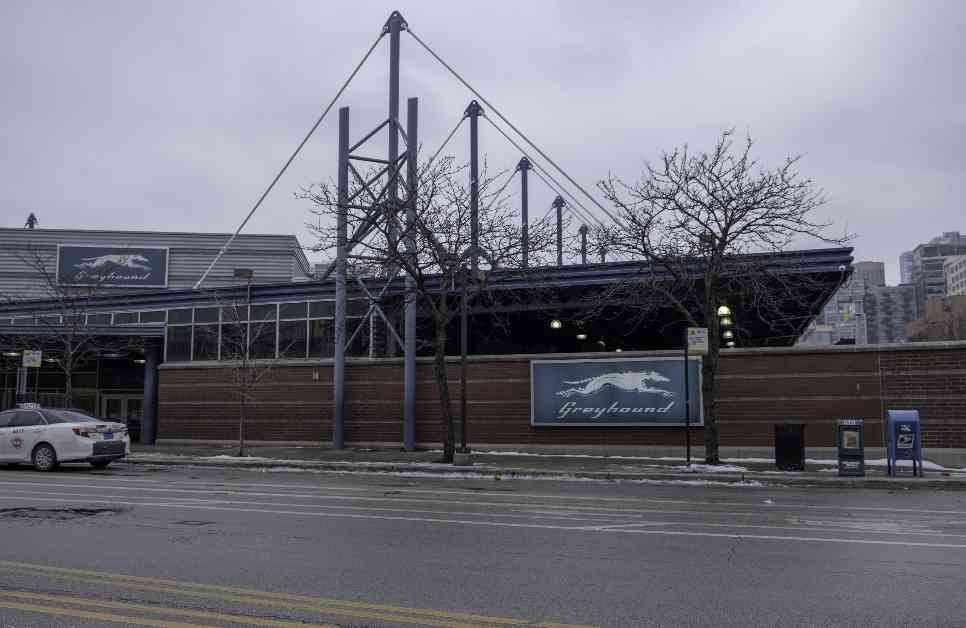Greyhound, a prominent intercity bus service, is set to close its only bus station in Chicago within the next month. This decision will leave Chicago as one of the few major cities in the world without a bus terminal, alongside Nairobi in Kenya and Kinshasa in the Democratic Republic of Congo. The closure of the Greyhound bus station at 630 W. Harrison poses significant challenges for travelers, especially as the winter season approaches with subzero temperatures.
The lack of a proper bus terminal in Chicago will force passengers to wait outside along the curb, a situation that is far from ideal, especially considering Greyhound’s tendency to cancel trips last minute. This has raised concerns about the well-being of travelers, particularly those who rely on intercity buses as an essential mode of transportation.
During a visit to the Greyhound station on Harrison between Desplaines and Jefferson, numerous passengers expressed their frustrations and fears about the impending closure. Many were unaware of the situation until it was brought to their attention. One traveler, Joshua, had already experienced multiple trip cancellations and reschedulings, leaving him stranded at the station for over 24 hours. The uncertainty of having to wait outside in harsh weather conditions, especially during winter, is a daunting prospect for many passengers.
According to DePaul University professor Joe Schwieterman, intercity buses serve as a crucial travel option for various demographics, including older individuals, low-income riders, people with disabilities, and those who do not have access to private transportation. The closure of the Greyhound station in Chicago could disproportionately affect these vulnerable groups, limiting their ability to travel and access essential services.
The potential closure of the Greyhound bus station has sparked a wave of discontent among passengers and advocates who believe that it will have far-reaching consequences for the city. Many individuals voiced their concerns about the impact of the closure on their daily lives and emphasized the importance of having a convenient and accessible bus option in Chicago.
Several passengers highlighted the challenges they would face if they were forced to wait outside, particularly those with disabilities or service animals. The lack of seating and shelter outside the station would pose significant difficulties for individuals who require assistance or have mobility issues. Additionally, the closure of the station could isolate certain groups of people and limit their ability to travel to and from the city.
The sentiments expressed by passengers reflect a broader frustration with the lack of consideration for the needs of ordinary residents by city officials. Many believe that the closure of the Greyhound bus station signifies a disregard for the well-being of working-class and underprivileged individuals who rely on intercity buses for transportation.
As the deadline for the closure of the Greyhound bus station approaches, the city of Chicago faces mounting pressure to address the concerns of passengers and find a suitable solution to ensure continued access to intercity bus services. The fate of the Greyhound station in Chicago remains uncertain, but the voices of those affected by its potential closure serve as a reminder of the essential role that intercity buses play in connecting communities and providing vital transportation options for all residents.

